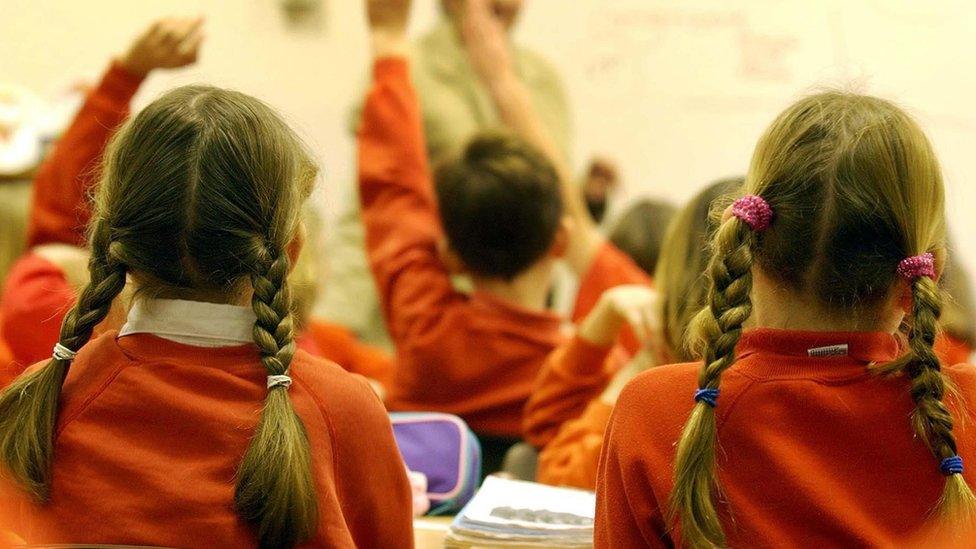NHS stretched by immigration, says majority - report
- Published

Two thirds of Britons believe migrants have had a negative impact on the NHS, a UK poll of public mood has suggested.
The 2015 British Social Attitudes Survey, external also found 71% of the 4,328 people polled thought immigration had increased pressure on schools.
In contrast 35% reckoned immigration was bad for the economy, and 40% that it undermined cultural life - a decline in levels of concern since 2013.
The report revealed big variations in attitudes depending on education.
For example, 15% of graduates think immigration is bad for the economy compared with 51% of those who do not have any educational qualifications.
And 21% of those with a degree think immigration undermines Britain's cultural life, compared with 54% of those without any qualifications.
However, when it comes to the impact of immigration on schools, graduates are almost as likely (67%) as those without any educational qualification (76%) to think it increases pressure on them.
'Net negative'
Researchers found younger people tended to take a more favourable attitude towards immigration than older people.
However, the decline in concern about the economic and cultural consequences of migration appears to have occurred among both graduates and non-graduates, younger people and older people, which researchers put down to an improvement in the state of the economy between 2013 and 2015.

Graduates changed their minds about the impact of immigration when it came to schools
Prof John Curtice, senior research fellow at NatCen, said: "Even during a period where the public appeared less concerned about the economic and cultural consequences of immigration, substantial majorities still said that migrants were having a net negative effect on British schools and the NHS.
"It would appear that assuaging this concern will be a key priority for the next prime minister as the government tries to meet the concerns about immigration that were evident during the EU referendum."
Immigration was a key issue during the EU referendum, with some Leave campaigners sending a clear message that it was about controlling immigration.
The British Social Attitudes survey, by the independent not-for-profit organisation NatCen, has been carried out every year since 1983, with questions repeated periodically to assess how opinions change over time.
The 2015 survey conducted 4,328 interviews between 4 July and 2 November on a representative, random sample of adults in Britain with a response rate of 51%.
Researchers spoke to 2,167 people about their views on the impact of immigration on the economy and British cultural life, and 1,100 people were asked about their views on the impact of migration on the NHS and schools.
- Published30 June 2016

- Published9 February 2016

- Published28 June 2016
